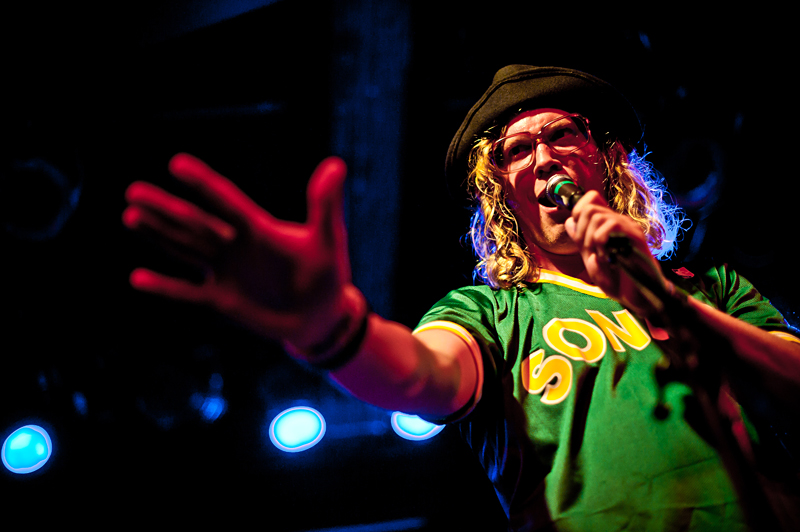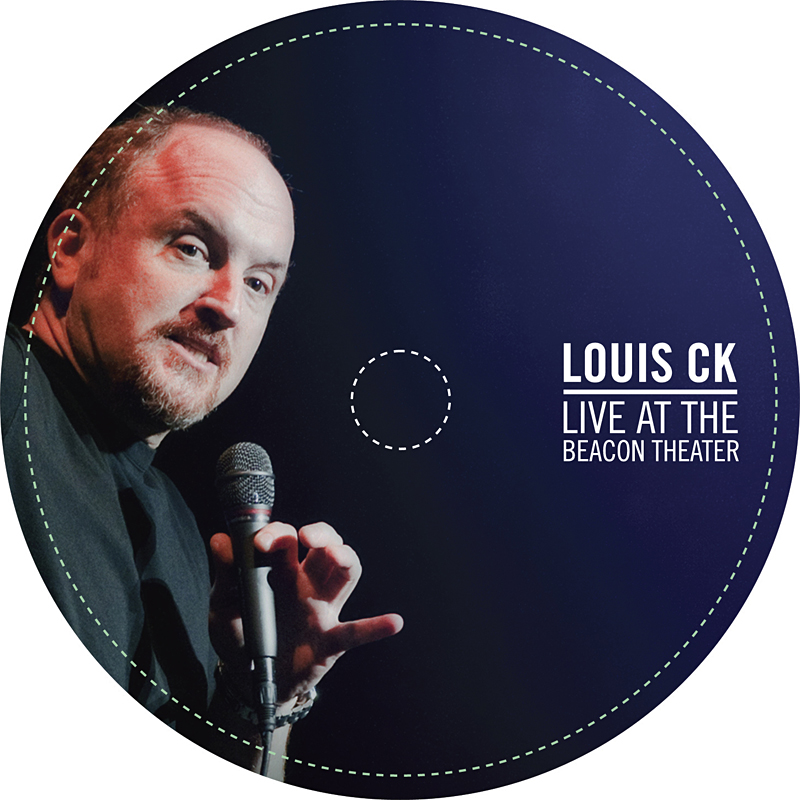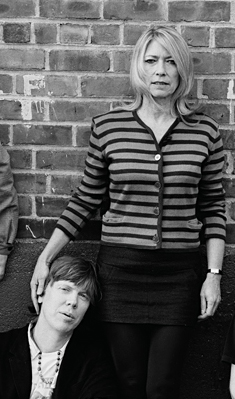Before Iceage Cobra arrive for load-in at the Paradox in Ballard, the club’s booker, Alicia Blake, removes all religious materials from the Mars Hill Church foyer, which will serve as the garage rockers’ green room this Saturday evening. Blake performs this secularizing sweep before every show at the Paradox, emblematic of the hands-off relationship the conservative megachurch has had with the all-ages venue—originally located in the University District—it launched in 1999.
A slim, clean-cut guy walks up to Blake, throwing his arms up in mock gangster fashion. “Hey, I’m Eric,” he says in a friendly manner. “I’ll be your facilities guy tonight.” He is not one of Blake’s regular volunteers, but rather a church member who offers to get her the money till from the safe, something Blake had always done previously. He then reminds her which doors to block off so patrons won’t wander into the rest of the church.
“This is all new to us,” says Blake, as she and Paradox promotions director Liz Martin exchange dumbfounded looks.
For the past year and a half, Blake and Martin (neither of whom attends services at Mars Hill) have transformed the Paradox from a church-funded endeavor into a prominent, self-standing secular music venue, booking shows by the likes of the Long Winters, Hot Hot Heat, and the Blood Brothers, among others. They’ve done so with zero input from Mars Hill staff and congregation. Yet in keeping with the church’s original goal for the Paradox, Blake and Martin have maintained the “always all-ages” policy, providing a safe environment for the under-21 crowd, something desperately needed during the pre–Vera Project days when the Teen Dance Ordinance crippled the teen scene.
But their work at the Paradox came to a sudden halt last Tuesday when Blake was told that the last show she’d book at the Paradox would be Dec. 16. Mars Hill elders had decided to bring the Paradox venue closer to the church, something Blake and Martin could not agree with.
“Last month, [Pastor] Leif Moi said the church elders wanted to meet with me,” says Blake. “He said because they’re building this new church in West Seattle and have this one up in Shoreline that they were beginning to review their programs. At the time, Liz and I were thinking of asking to completely separate from the church and take the Paradox venue elsewhere. But when I brought that up, they said no.”
Not only did the church wish to keep the name of the venue, they wanted to take back control of the space and staff it exclusively with church members (volunteers have been predominantly nonchurch members). Moreover, on Oct. 11, the church changed the passwords to all Paradox staff e-mail accounts, including Blake’s, which doubled as her personal account. After she complained, they granted her access to the e-mail address, but not the Paradox’s volunteer list or Web site. Blake says that church management has not revealed a concrete plan for what to do with the venue once it assumes control in December.
While Mars Hill has gained a robust following by incorporating elements of popular culture into its worship milieu to attract young, hip parishioners, it has come under scrutiny for its conservative views of women and homosexuals. Pastor Mark Driscoll has been quoted as saying women were made to serve men, and that homosexuals cannot be Christians.
Though Blake and Martin have maintained that they disagree with the church’s views, they have never been outspoken about it, preferring instead to be forthright about their independence when it comes to booking all secular acts. Mars Hill staff members did not return calls for comment in time for publication, but Blake and Martin speculate that church elders were uncomfortable with how the Paradox had drifted steadily out of their control.
“I think part of the suddenness of this,” says Martin, “was when they started to review the programs, they didn’t like nonmembers having access to the safe and things like that.”
There has been considerable chatter about what kind of changes will take place at the Paradox when the new management takes over. While much of it has been that the Paradox is likely to book all Christian acts, Blake notes that when the Paradox was run by church members at its original University Theater location, they were booking secular acts as strong as Rainer Maria, Low, and Bright Eyes. But for Nash Turley, a 20-year-old University of Washington student and Paradox volunteer for the last seven months, the sense of community Blake and Martin had nurtured will be lost once the club changes hands.
“If [Blake and Martin] aren’t working, I won’t want to be a part of it,” says Turley. “I mean, I volunteered there because it wasn’t part of the church—and the volunteers were just a cool group to hang out with. This change seems like not a good thing.”
Looking past December, Blake and Martin have launched a new production company, Make Believe, which will book shows at various venues around town.
“After all the work we did here, it sucks,” says Blake. “At one point last summer, Liz and I both looked at each other and were like, ‘We’re on a roll here.’ But at the same time, we didn’t agree with the church and the way it was going, so it sort of feels OK that it came to an end when it did.”








